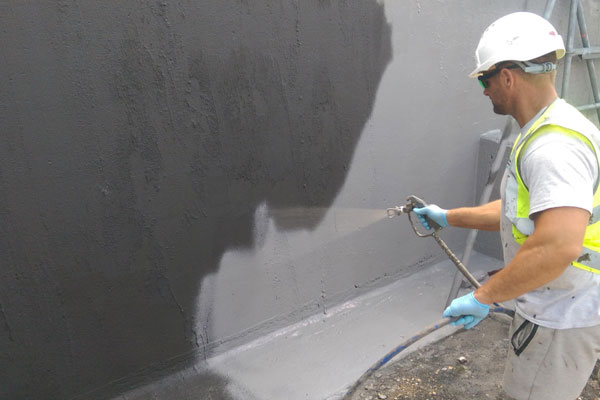Are you trying to go the extra mile to be protective and caring of your teen? Stop right there! They are no longer a kid. They are out of toddlerhood, no longer in need of that extra care and attention. Perhaps, it is good to perform a self-audit of where you stand right now with regards to the level of care you shower on your teen. Definitely, your teens are not desirous of “helicopter parenting”, a term coined by Dr. Hain Ginott, appearing in his published work “Parents and Teenagers” in 1969. It found origin in an expression used by teens to define their parents’ attitude towards them: they felt that their over-concerned parents hovered over them as does a helicopter.
The Start of Helicopter Parenting
Helicopter parenting starts much earlier when your teen is just a toddler. You should think back to the days and try and remember your behavior toward your teen as a toddler. Of course, frequently checking in on your toddler is a normal parenting practice that is expected when they are at such a tender age. However, there is an extreme end to such parenting that does not let the toddler be out of sight even for a second. This obsession can stretch into the toddlers’ early schooling days when parents might make sure, let’s say, that their kid had a coach or teacher of their liking or that their child had those friends whom they approved of, or that they selected the school activities for their kid. Similarly, they might help their kid around a lot in their homework and projects. If this was the sort of parenting you did, then you stand accused of being a helicopter parent. Unfortunately, the impact of such parenting carries negative repercussions for your kid into their teenage years and even post-teen years.
Out of Good Will
Many helicopter parents want the best for their kids and that is why they involve themselves in their kids’ lives. What they do not realize, however, is that their high level of involvement is actually negatively affecting their kids’ future personalities. It is very important to find the distinction between staying on the other side of the line and crossing it over. The right balance does not let you become overly watchful of your kids’ lives but let them decide for themselves what they want.
A parent who showers attention on their child is actually aiding in self-development and boosted confidence. But, there is the opposite side of paying attention to your kids: if your sole motivation for involving yourself in your kids’ life is fear of what might happen if they are left alone, you are not doing a lot of good for them.
Remember obstacles and losses in life will help your kid learn how to deal with and overcome problems later in life. Let us have a look at the disadvantages helicopter parenting carries for your kids.
Outcomes of Helicopter Parenting
Lowered Self-Assurance and Self-Regard
One of the ill effects of helicopter parenting is that it actually diminishes your kid’s self-assurance and self-regard. An overly-supervised child is likely to feel that their parents do not have faith in them – this can be very detrimental to the confidence they have in themselves.
A Compromised Coping Mechanism
A parent who steps in to cover a child’s mess-up or to lower the chances of the occurrence of a mess-up hinders the development of their child’s endurance against odds, making him/her incapable of learning to cope with losses, failings and setbacks.
Exaggerated Levels of Anxiety
A study conducted by the University of Mary Washington reveals that helicopter parenting correlates with feelings of anxiety and depression in children.
Misleading Sense of Privilege
Parents who engage in helicopter parenting by being overly involved in their kids’ academics, socialization practices, and extracurricular activities instill in their kids a sense of false privilege, making them hopeful of having all they ever wanted easily. Not getting something they would expect to gain readily can make them feel unduly disappointed.
Diminished Survival Skills
Tasks such as lacing up shoes, cleaning plates after dinner, tidying the room, preparing food for lunchboxes must be given over to the kid. Parental involvement in these kinds of routine activities hampers a child’s ability to acquire these essential life skills.
Countering the Ill-Effects
Now’s the time to launch a campaign against the ill-effects your helicoptering may have brought for your teens. Although you cannot, of course, go back in time and start all over again in the correct direction, you can certainly hope to counter the wrongs that have been done. To your teen, an all-of-a-sudden shift from pampering may be shocking.
Be watchful of your teen’s failing or underperforming behaviours which could be an outcome of the alienation they feel from the departure of helicoptering. They may counteract by trying to put the spotlight back on themselves. This could be a result of four kinds of feelings they face in the absence of helicoptering.
Attention Deficit
Since they were used to being the center of attention for you, they will suddenly feel the lack of care from you, which will make them resentful and even responsible in a way that some act of theirs brought this on them.
Take Back the Charge
The lack of attention they feel creates a sense of emptiness in them, triggering them to take back the charge they had in past situations. Helicoptering creates in them the false sense that they matter to you only when they have control in a situation, given that they have grown up used to having it their way, no matter what.
Feelings of Revenge
They will feel angry because they will hold you responsible for suddenly abandoning them. As a result of this anger and the perceived lack of attention from you, they will want to seek revenge from you. However, don’t worry and go through these many ways of dealing with teen anger.
Feelings of Inadequacy
The attention-deficit may also make them feel like a failure. In response to the changing circumstances, they might try and prove they are still worthy of that extra care and attention they previously had from you. Your persistence in the face of their efforts may make them feel they have failed to win back your love. This may make them withdraw into themselves.
Time for Some Good Parenting Practices
Now that you and your teen are out of the negative circle of helicoptering, it is time to change it up with positive parenting practices. Something that can work is to ask your teen to start doing more chores. This could make them feel more involved and also help them feel that they matter.
Peaceful Resolution
Teens with built-up anger from the neglect caused by the absence of helicopter parenting will be difficult to deal with. A way to handle this situation is to talk it out with them in a peaceful manner.
Allow them the space to let out their emotions. Follow this up with a discussion at the right time and place. Let them speak their mind about whatever is troubling and pacify them by providing a suitable response to their points. Make sure that you satisfy them fully with regards to the points raised and offer them reconciliatory substitutes.
Prepare Your Teen to Take Flight
Having looked at all the negative effects of helicopter parenting, the possible repercussions on teens and the suitable ways to counter the impacts of helicopter parenting, your focus must turn toward readying your teen to take a flight out of the home and face the outside world more confidently. Remember over parenting is not the way to go about. Instead, letting your teens have their space and freedom to decide the best for themselves better prepares them for their lives ahead. This does not, however, mean that they must always choose for themselves. They must know they can always come to you whenever unsure about something.
Author Bio:
Andy Earle is a researcher who studies parent-teen communication and adolescent risk behaviors. He is the co-founder of talkingtoteens.com, ghostwriter at WriteItGreat.com, and host of the Talking to Teens podcast, a free weekly talk show for parents of teenagers.



